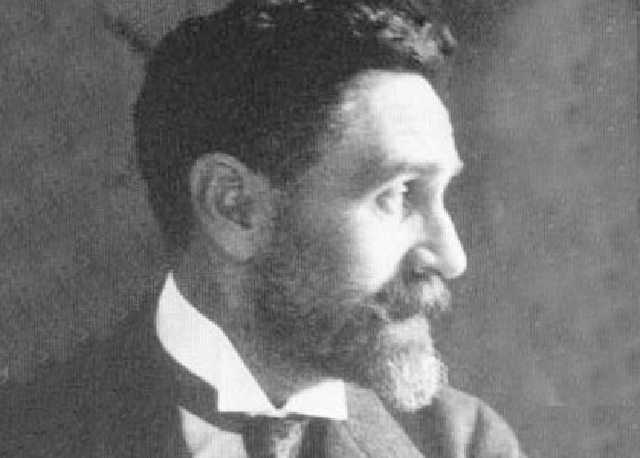<![CDATA[On the 13th September 1914 in New York City, the Irish diplomat Sir Roger Casement met with Franz Von Papen the German military attachi, to bargain for German support in Ireland's drive for independence. The meeting took place as the intensity of the First World War was dramatically increasing. This clandestine affair shows the lengths Irish Nationalists were willing to go to achieve self determination. Casement had served in the British Consular service for twenty years prior to his involvement with the Irish Nationalist cause. He had formed an international reputation for exposing the worst colonial exploitation of indigenous populations in Africa and South America. It is unsurprising that this cynicism for the consequences of colonialism and empire stretched to the land of his birth. His life tells us a great deal about the growing cynicism towards imperialism that was stirring while its biggest proponents were leading the world into its most devastating conflict. The question of Irish independence had dominated British politics for decades, particularly in the years leading up to the outbreak of the First World War. In 1909 Great Britain descended into a Constitutional Crisis as the Liberal government struggled to get its Finance Bill through the House of Lords. General Elections were called in January and December 1910 which both ended in hung parliaments. The Irish Parliamentary Party held the key to the balance of power in the House of Commons. Its leader John Redmond pledged support to the Liberal party, in exchange for the introduction of a new Home Rule Bill. Delivering the bill was a long and tumultuous process. For two years the House of Lords vetoed the Third Home Rule Act. Even when the veto expired, internal conflicts in Ireland had to be considered. Devolution of the British government's role in Ireland was as controversial there as it was in the Houses of Parliament. Ulster Unionists were ardently against any level of home rule in Ireland. A paramilitary organisation called the Ulster Volunteers was formed with the promise of resisting the act and any Dublin based parliament with armed force. The Irish Nationalist Volunteers were created in response, and by 1914 Ireland was on the brink of Civil War. Despite the volatile situation in Ireland, the Third Home Rule Bill was passed, but its enactment suspended by the outbreak of the First World War. It had yet to be defined how the bill would be enacted, and what provision would be made for the Ulster Unionists. This is the context in which Sir Casement made his approach to Germany. Casement's first meeting with Von Papen saw him suggest the formation of an Irish Brigade, made up of members of the Irish Nationalist Volunteers, to fight alongside the Triple Alliance in the First World War. A second meeting followed soon after, that saw Casement head to Germany itself to consult with the country's diplomats. Although he failed to secure the support of German troops, the country issued a declaration in support of Irish 'prosperity and freedom.' This failure to secure German military support caused Casement to question the prudence of the nationalist uprising planned for Easter 1916. He unsuccessfully failed in his attempt to persuade the uprising's organisers to cancel the event. The uprising went ahead, but was quickly suppressed by the British armed forces. Casement was arrested on his return to London, and tried for treason. He was found guilty and executed by hanging on August 13th 1916. His body was returned to Ireland where he was given a state funeral as a hero of the Irish nationalist cause. This wasn't the first time Irish Nationalists had appealed to Britain's enemies in their quest for freedom. The fact that Casement, a respected diplomat, was willing to endanger his life to appeal to Germany for assistance tells us a great deal about the passion for freedom in Ireland at this time. Casement's life, from his consular work to his death, tells us a great deal about the debate over the role of empires that was gathering momentum, a debate that would prove to be so crucial for the rest of the twentieth century.]]>
Irish Nationalism and Germany in the First World War
